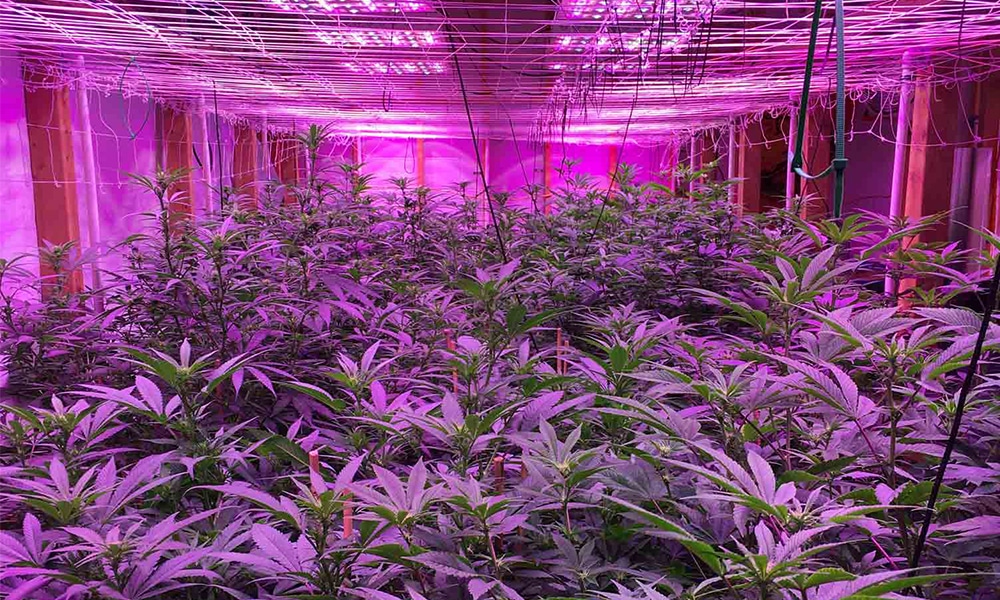Background
The journey of cannabis legalization in Nevada has been transformative. In November 2000, the state took its first progressive step by legalizing medical-use cannabis. Fast forward to 2016, and recreational use of Nevada cannabis received the green light, thanks to the overwhelming support of Nevada’s voters2. Since then, the package retail marijuana industry has witnessed exponential growth. In 2022 alone, Nevada cannabis sales soared close to the $700 million mark3, making Nevada a lucrative ground for cannabis entrepreneurs
Types of Cannabis Licenses in Nevada
Cultivation Licenses
Permits for growing cannabis, with various tiers based on facility size and growing conditions.
Manufacturing Licenses
Allows for processing cannabis into various products, including extracts and edibles.
Retail Licenses
Enables the operation of dispensaries and delivery services for medical and/or recreational use.
Distribution Licenses
Required for transporting cannabis products between licensed facilities.
Cultivation Licenses
Cultivation facilities licensed by CCB. Must comply with zoning, security, and METRC.
Back to the TopManufacturing Licenses
Production facilities process concentrates and edibles. Requires facility plan and GMP standards.
Back to the TopRetail Licenses
Dispensaries must meet zoning, background, and tracking requirements. Adult-use and medical retail allowed.
Back to the TopDistribution Licenses
Distributor license allows third-party transport. Requires secure vehicle and tracking compliance.
Back to the TopHow to Obtain a Cannabis License in Nevada
Comprehensive Research and In-depth Preparation
Market Analysis
Initiate your journey by delving into an exhaustive examination of the Nevada cannabis market. This encompasses a thorough assessment of market dynamics, including market size, growth trends, regional variations, and emerging market segments. Analyze historical data and market projections to gain a comprehensive perspective.
Consumer Insights
Beyond surface-level awareness, it’s essential to gain deep insights into consumer preferences within the Nevada cannabis market. This involves demographic analysis, consumer behaviors, product preferences, and purchasing patterns. Understanding the nuances of your target audience is pivotal for crafting effective marketing strategies.
Regulatory Proficiency
Navigate the intricacies of the regulatory landscape established by the Cannabis Compliance Board (CCB). Study the Nevada cannabis statutes and regulations in detail, focusing on Nevada Cannabis licensing requirements, compliance standards, and ongoing reporting obligations. Engage legal experts with expertise in cannabis regulations to ensure comprehensive compliance.
Competitive Analysis
Assess the competitive landscape thoroughly. Identify existing players, their market share, strengths, weaknesses, and strategic positioning. Explore their product offerings, pricing strategies, and distribution networks. A nuanced understanding of the competition is vital for differentiation and market entry.
Site Selection
If considering a physical location for your cannabis business, perform due diligence in site selection. Consider factors such as proximity to target demographics, accessibility, zoning regulations, and security requirements. Engage with real estate professionals who specialize in cannabis property to aid in optimal location selection.
Risk Assessment
Conduct a comprehensive risk assessment that includes potential legal, financial, and operational risks associated with the cannabis industry. Develop mitigation strategies for each identified risk to bolster the resilience of your business plan.
Network Building
Establish connections within the Nevada cannabis industry. Attend industry events, and conferences, and engage with cannabis industry associations. Building a robust network can provide invaluable insights, potential partnerships, and regulatory guidance.
Develop a Solid Business Plan
Draft a robust business plan detailing your target market, financial projections, and marketing strategies.
Assemble the Necessary Documentation
Documentation is crucial. From the Statement of Application & License Fee Paid to the Registration with the Nevada Secretary of State Business License, ensure all paperwork is in order. Consulting with an attorney can be invaluable here, ensuring you don’t miss any critical detail.
Submitting the Application
How to Apply for a New License
The process for obtaining a new license for cannabis establishments is outlined. It typically involves submitting an application to the Nevada Cannabis Compliance Board (CCB) and meeting specific regulatory requirements. The specific application period for consumption lounges is determined by the CCB.
How to Renew Your License
Details on the renewal process for Nevada cannabis establishment licenses are provided. This often involves using the Customer Portal to complete the renewal application for a Nevada cannabis license. Renewals are essential to maintain legal operation within the industry.
Agent Card Requirements
This section explains that all employees, contractors, volunteers, and others working in cannabis establishments must possess a valid and current registered Agent Card issued by the CCB. Agent Cards are typically required to demonstrate that individuals are qualified to work in the industry.
Limitations on Employment
Specific requirements for employment in the cannabis industry are detailed. Employees must typically be 21 years or older, cannot have been convicted of an excluded felony, and must comply with child support orders. These limitations are imposed to ensure the suitability of individuals working with cannabis products.
How to Apply for an Agent Card
This outlines the multi-step process for individuals applying for an Agent Card. This process often includes requirements such as background checks, fingerprinting, and submission of the necessary application forms. Agent Cards are essential for individuals to work legally within the cannabis industry.
Payment and Fees
Information on the cost associated with obtaining an Agent Card is provided. Typically, the fee is $150 per category or job role. Various payment options are available to facilitate the application process.
Payment and Fees
Note: Fee structures are subject to change. Consult the official Nevada cannabis regulatory website for current fee schedules.
Application Fees
The application fee covers the initial costs associated with processing and reviewing cannabis business license submissions in Nevada. These fees vary depending on the type of license and the size of the proposed operation. It’s essential to ensure all application materials are complete and accurate to avoid delays or additional costs.
License Fees
License fees are required to maintain compliance and secure operating privileges for cannabis businesses in Nevada. These fees are determined based on the license type, such as retail, cultivation, or distribution, and are typically due annually. Staying current with license payments is crucial to avoid penalties or disruptions in business operations.
Application Review and Compliance Inspection
Once submitted, the Cannabis Compliance Board will review your application. They’ll inspect your proposed location, verify the information provided, and conduct background checks. Stay proactive during this phase, ensuring prompt communication with the Board.
Post-Application Steps
After the rigorous process, if your application shines through, you’ll be on your way to making a mark in Nevada’s cannabis industry. But remember, obtaining the license is just the beginning. Staying compliant with regulations is an ongoing responsibility.
Risk and Compliance Factors From AlphaRoot
The cannabis industry, while burgeoning with opportunities, is not without its complexities and inherent risks. Understanding and mitigating these risks is crucial for long-term success. AlphaRoot, a prominent insurance and risk management firm specializing conduct business in the cannabis sector, sheds light on the key risk and compliance factors
1. Regulatory and Legal Risks
Labyrinthine Regulations The cannabis industry is highly regulated, and compliance with state and local laws is paramount for cannabis establishments. Navigating the intricate web of regulations, which can vary significantly from one jurisdiction to another, poses a substantial challenge for cannabis establishments. Failure to comply can result in fines, license revocation, or legal consequences.
Federal Ambiguity Cannabis remains illegal at the federal level in the United States, despite state-level legalization of recreational marijuana. This dichotomy creates uncertainties and exposes businesses that sell recreational marijuana here to potential federal enforcement actions.
2. Financial Risks
Cash-Intensive Operations Due to federal banking restrictions, many cannabis businesses operate primarily in cash. This not only presents security risks but also complicates financial management and taxation.
Taxation Challenges Cannabis businesses face unique tax challenges, including limitations on deductions and potential audits. Understanding and complying with tax regulations is essential to avoid financial penalties.
3. Security Risks
Theft and Robbery Cannabis businesses are susceptible to theft and robbery due to the high value of their products. Implementing robust security measures at a marijuana cultivation facility, including surveillance systems and secure storage, is vital to mitigate these risks.
Cybersecurity As with any industry, cannabis businesses are vulnerable to cyberattacks. Protecting sensitive customer data and business information is critical.
4. Product Liability and Quality Control
Product Liability Claims Ensuring the safety and quality of cannabis products is crucial to prevent product liability claims. Contaminated or mislabeled products can lead to legal and financial repercussions.
Testing and Quality Assurance Collaborating with reputable independent testing laboratory and facilities, as required by regulations, is essential to verify the safety and potency of cannabis products. Consistent quality control is essential to maintain consumer trust.
5. Market Competition and Volatility
Saturated Markets in regions with a high concentration of cannabis businesses, competition can be fierce. Navigating market saturation requires effective differentiation and marketing strategies.
Price Volatility of Nevada cannabis products can fluctuate significantly, impacting profitability. Businesses must adapt to market dynamics and price changes.
6. Environmental and Sustainability Concerns
Resource Intensity Cannabis cultivation and processing can be resource-intensive, including water and energy consumption. Businesses need to address sustainability concerns and adhere to environmental regulations.
Waste Management Proper waste disposal and recycling practices are essential to minimize environmental impact and meet regulatory requirements.
7. Talent and Workforce Challenges
Talent Shortages the Nevada cannabis industry often faces challenges in recruiting and retaining qualified personnel due to its specialized nature. Employee turnover can disrupt operations.
Training and Compliance Businesses must invest to ensure employees are well-informed about compliance and safety protocols.
Cannabis License in Nevada FAQ
Renewal forms are provided with instructions and must be submitted by the deadline using USPS, UPS, or FedEx.
Nevada marijuana laws states annabis is taxed with a 15% excise tax on marijuana establishment for the wholesale sale of marijuana, sales tax on marijuana only, and a 10%. retail marijuana stores excise tax for adult-use marijuana sales unless medical marijuana is sold to a patient cardholder.
Board members of the advertising department is not currently required but must comply with local zoning and regulations, including not targeting those under 21 years of age.
You need an Agent Card for each role, which requires a $ application fee, $150 application fee, a background check, and an online application process
About the Author

AlphaRoot Team
The AlphaRoot marketing team are seasoned experts with deep knowledge of the cannabis industry. Our informative articles help cannabis businesses thrive in a competitive landscape. From compliance to insurance tips, we’re dedicated to providing advice tailored to your needs.





